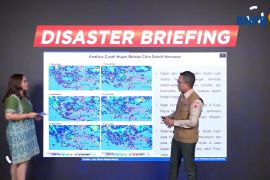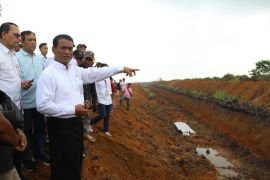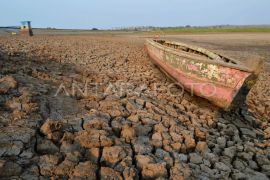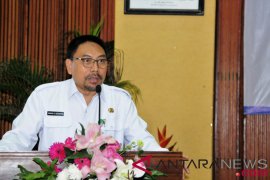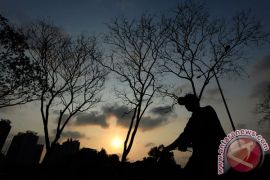We cannot deny it, which could occur due to weather conditions such as this."Kupang (ANTARA News) - El Nino has caused crop failure in the third growing season of 2015, which lasts from October 2015 to January 2016, according to the Kupang local government.
"Several farmers, who had sown seeds at the start of the third growing season in 2015, had to face crop failure. Last December, they had tried to sow the seeds once again, but the threat of failure looms large due to the lack of rain," Head of Kupangs Agriculture and Horticulture Office, Arnol Subaki, stated here on Friday.
Currently, Kupangs farming community comprises two groups such as the rain-dependent farmers and those having irrigation systems to grow crops on 20 thousand hectares of the area bordering Oecuse in Timor Leste.
In a normal year, the 20 thousand hectares of agricultural land are able to yield up to 80 thousand tons of grains per year.
"But what happened in the 2015 growing season? Climatic changes, decreasing land utilization, and farmers failing to plant and crop failures. We cannot meet the harvest target," Arnol pointed out.
Until the end of January 2016, the farmers in Kupang had managed to utilize only 4,371 hectares of agricultural land, while the rest could not be used due to lack of rainfall.
This situation will certainly have an impact on the condition of the crops and food stocks in the region. Although it still requires in-depth technical analysis, but in fact, food shortages will occur in the area.
"We cannot deny it, which could occur due to weather conditions such as this," Arnol added.
The Kupang District Government continues to encourage farmers to grow crops with short life cycles that require less water, such as tubers, bananas, and peanuts in order to meet their household needs.
"We have conveyed the call through a letter to all district heads in this area," Arnol stated.
Specifically, for the current climatic conditions, it is better to plant green beans, as a reliable option, to serve as a source of income for the local farmers.
The government hopes that the farmers would continue to cultivate crops but rotate the crop pattern and grow climate-resilient plants, such as green beans.
"The results are very promising and will be able to anticipate food insecurity if it occurs," Arnol added.
(Uu.A050/KR-BSR/F001)
Editor: Priyambodo RH
Copyright © ANTARA 2016

